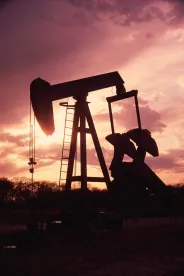Despite numerous attempts in recent years by local governments to regulate oil and gas activities at the municipal level, recent developments in Pennsylvania, Ohio and Colorado signal a continued trend favoring states’ authority to regulate these issues as matters of statewide concern.
Pennsylvania
On September 29, 2017, the U.S. District Court for the Western District of Pennsylvania invalidated a township charter that sought to prohibit corporations from depositing wastewater from oil and gas activities within the municipality’s borders. The municipality in question, Highland Township, adopted the charter by referendum after a previous township ordinance seeking to regulate wastewater was determined to be unenforceable.
Notably, Highland Township did not contest the assertion that its charter was preempted. Ultimately, the district court found that Pennsylvania’s oil and gas statute expressly preempted the township’s charter because the statute only permits local oil and gas regulation within limited zoning, land use or flood management contexts that were not applicable in this instance.
Ohio
In response to similar referendum petitions seeking to regulate local oil and gas activity in Ohio, an Ohio county’s Board of Elections refused to certify a ballot initiative that would have allowed the citizens of Youngstown, Ohio to prohibit the drilling of new oil and gas wells in Youngstown. Although the initiative gained the sufficient number of signatures necessary to qualify for the ballot, the Board determined that certifying the initiative would have exceeded the city’s authority. The Board’s refusal to certify prevented Youngstown citizens from voting on whether to ban new drilling.
Advocates of the initiative filed suit and, on October 6, 2017, the Ohio Supreme Court denied the advocates’ attempt to compel the Board to certify the initiative, finding that a county board may refuse to certify an initiative if the regulation underlying the initiative would exceed the scope of the municipality’s authority, regardless of whether the initiative received the necessary number of signatures.
Colorado
In addition, ongoing battles between Colorado local governments and the State of Colorado are being fought over local regulation of oil and gas activities. On August 22, 2017, the city council of Thornton, Colorado adopted an ordinance (despite opposition from the Thornton mayor) that, among other things, (1) requires a 750-foot buffer between oil wells and homes, which exceeds the 500-foot requirement imposed by the state; and (2) requires drilling companies to maintain $5 million in general liability insurance, compared to the $1 million required by the state.
The City of Thornton’s broad restrictions on oil and gas development within its boundaries follow rulings by the Colorado Supreme Court in 2016 that local bans and moratoria on hydraulic fracturing by home rule cities are unconstitutional and preempted by state law. On October 10, 2017, the Colorado Oil and Gas Association and Colorado Petroleum Council filed a lawsuit against Thornton challenging the new regulations.
Also in Colorado, other local jurisdictions recently joined forces to urge the state to implement stronger oil and gas regulations. The jurisdictions co-signed a letter to the governor and the Colorado Oil and Gas Conservation Commission to express concerns regarding oil and gas operations in the state. The local jurisdictions’ strategy of choice (sending a co-signed letter to state officials) may have been selected, in part, based on a recognition that the recent Colorado Supreme Court decisions significantly limit regulation of oil and gas activities at the local level.
In summary, while the battle over local versus state regulation of oil and gas activities is ongoing, these recent developments indicate a growing trend by courts to invalidate local regulations that exceed a municipality’s authority under state law. Nonetheless, as local governments develop novel approaches to restricting oil and gas development within their borders, legal challenges to those restrictions are expected to continue.
Kevin Voelkel also contributed to this article.




 />i
/>i
